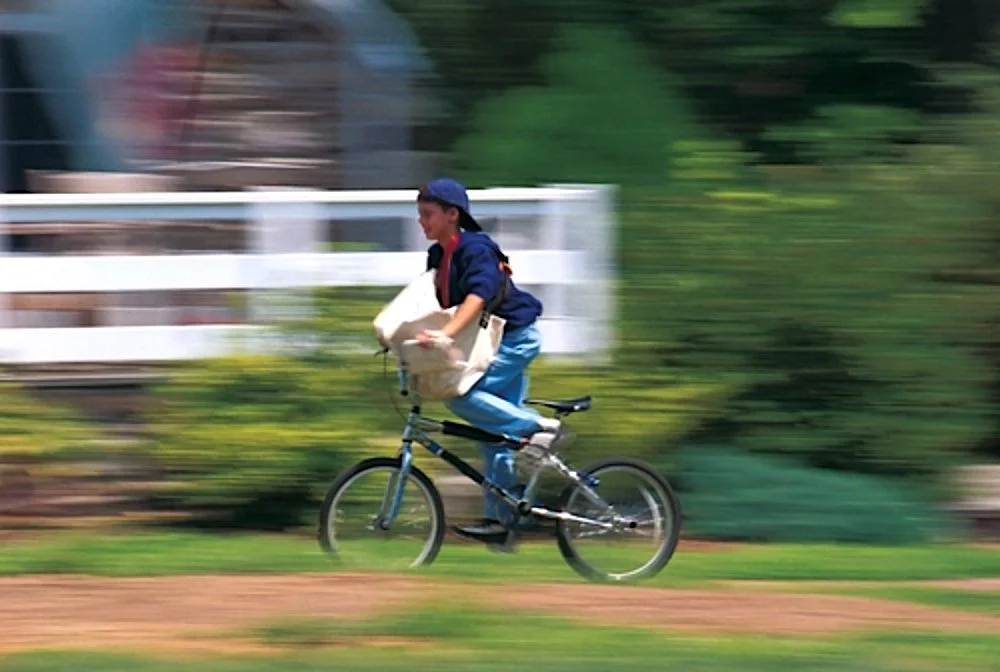Lucky About Work
August 18, 2025 – John Abrams
freeimages.com
From the time I was 12 years old, I loved work. Not all work. I didn’t like to clean up my room, rake leaves, or take out the garbage. But the thing that made me love work was my paper route.
I lived in an unincorporated part of San Mateo County, in the town of Menlo Park CA, in the heart of what has become the Silicon Valley. The area, known as Menlo Oaks, includes about 300 homes and the Peninsula School, a private day school housed in the old Coleman Mansion, built in 1882, when California was still young. The school opened in 1925 to bring progressive educational philosophies—grounded in the work of John Dewey, Maria Montessori, and Francis Parker—to the Bay Area.
In the 66 years since I moved to Menlo Oaks at age 10, the area has changed little. Although many of the cottages have expanded into houses, the school is still there, thriving, and the streets are still semi-rural. It’s a throwback neighborhood hidden amidst this hyper-suburban area.
The daily newspaper that served the area, from 1893 to 1993, was the Palo Alto Times. I delivered it on my bicycle after school for a few years. My papers were brought to me every day, six days a week, in a station wagon driven by a friendly middle-aged guy whose face I remember but whose name I forget. When he arrived, I met him, got the papers, and brought them into our garage. I folded them in the prescribed manner, which made them hold together when they were tossed and hit the ground. I’d load them into the two pockets of the canvas bag that the Times had provided.
Once loaded, I’d sling the bag over my shoulder, hop on my three-speed Schwinn, and head out. At each house, without stopping, I’d pick out a paper and throw it into the front yard—sometimes on the lawn, sometimes on the driveway, sometimes on the porch (known as porching it). I loved holding onto one handlebar with my left hand and grabbing and tossing a paper with my right, either forehand or backhand, depending if it was going left or right. It felt like a dance, choreographed and balanced.
What I liked about this job, and the thing that made me love work, was its multi-faceted nature: it took skill and dexterity, it was social, and it was never boring. I liked riding along, developing my skills, and saying Hi to neighborhood people I’d encounter. Once a year, just before Christmas, I had to go to every house, knock on the door, and collect subscription fees. I did this on a Sunday. I walked, because it was easier than getting on and off my bike and I could cut across lawns and through yards to shorten the route.
The Times provided small, printed invoices that said, “PA Times subscription one year” and the cost, $18.00 ($1.50 a month). People paid me in cash or check, they usually gave me a tip, and I checked them off the list. If they weren’t home, I’d come back later or the next day until I’d rounded up all of them. I put the money in a bag and gave it (and the checked-off list) to the driver next time he came. I kept the tips (my pay) and mostly bought baseball cards.
My paper route was not all honey and sunshine. On rainy days, I had to put each paper in a plastic bag secured by a rubber band. My raincoat was uncomfortable. It’s hard to grab a paper and throw it when you’re riding in the rain in a stiff yellow slicker. The matching hat had a brim front and back. I folded the front brim up, which defeated its purpose and made the water run down my face instead of shedding. But style ruled, even at that young age. I remember one very stormy day when my Mom drove me in her white 1960 Pontiac Bonneville station wagon.
I don’t know how long I did that paper route. I never thought to ask my parents before they both died in their nineties. There would have been no point. My beloved Dad would probably have said, “What paper route?” My doting Mom would have given a definite but wrong answer. My paper route had kind of a Peanuts-like quality—mostly no parent involvement. Little league was like that, too. These days, there are more adults at a little league game than kids, but my folks never came to games. My friends and I would get on our bikes, ride downtown, get a hamburger, fries, and a Coke at Jiffy Burger for 25 cents, and then go to the field and play.
I doubt my parents understood the importance of that paper route. But for me, it came to define my grade school years. And it taught me that hard work and happy play could be the same thing. That stuck with me, and that sense entirely endures today.
I wonder what most kids growing up today can do in their youth that will impart that lovely sense of work as play. I’m happy to say that my three older grandsons have each found something like that and earned highly portable and valuable skills.
They’re lucky about work. I was lucky about work. I hope you’re lucky about work, and I hope your kids and grandkids (if you’re old like me) will be lucky, too.

